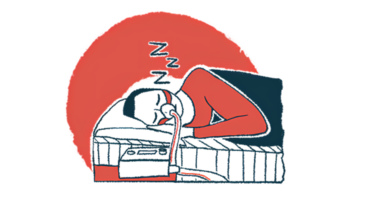Caregivers of Young PWS Children Experience Poor Quality of Life, Need Additional Support, Study Says

Caregivers of young children with Prader-Willi syndrome (PWS) report low quality of life, highlighting the need for additional support systems for these families, a new Chinese study has found.
The findings also indicate that caregivers of PWS children with poor social skills or other symptoms such as obesity or developmental delay may be at a greater risk for a lower quality of life.
The research was published in an article, “Quality of life in caregivers of young children with Prader-Willi syndrome,” in the World Journal of Pediatrics.
Previous research has shown that people who care for adolescents and adults with PWS report low quality of life (QOL). However, no such study has focused on caregivers of PWS children younger than six, who typically need more care.
To address this, researchers at Children’s Hospital, Zhejiang University School of Medicine, in China, assessed QOL of 32 caregivers, who each looked after a child with PWS.
The caregivers included 17 mothers, 11 fathers, and four grandparents of children with the condition. Their age ranged from 24 to 71 years, and all but two were married. The children under their care were from 6.1 to 71.2 months (or six years) old.
QOL was measured using the World Health Organization Quality of Life-Brief Version (WHOQOL-BREF) questionnaire. The team also measured the children’s social adaptation skills using another validated questionnaire, the Infants-Junior Middle School Students’ Social-Life Abilities Scale.
Results showed that among the four domains of the WHOQOL-BREF, the caregivers reported significantly lower-than-normal scores in three areas: physical (12.8 vs. 15.1 reported norm score), psychological (12.8 vs. 13.9), and social (12.4 vs. 13.9). Scores in the environmental domain were not significantly different.
The team then analyzed the caregiver traits that predicted lower QOL.
The researchers found significantly reduced QOL in caregivers of the younger children. Caregivers of children with lower social adaptation scores or those who expressed concerns about their child also had significantly lower QOL scores. Common concerns included developmental delay (50% of caregivers), obesity (28.1%), short stature (18.8%), and behavioral problems (12.5%).
Overall, the findings showed that “PWS may cause high caregiver burden and impact many aspects of the lives of caregivers,” the investigators wrote. “The multiple factors of children’s ages, children with combined diseases or symptoms, caregivers having concerns about children, and children’s social adaption ability affected the caregivers’ QOL.”
Therefore, caregivers of children with PWS need better support, the researchers said.
“Psychological status of caregivers should be highlighted, and social support should be given to families with PWS children,” they said.






